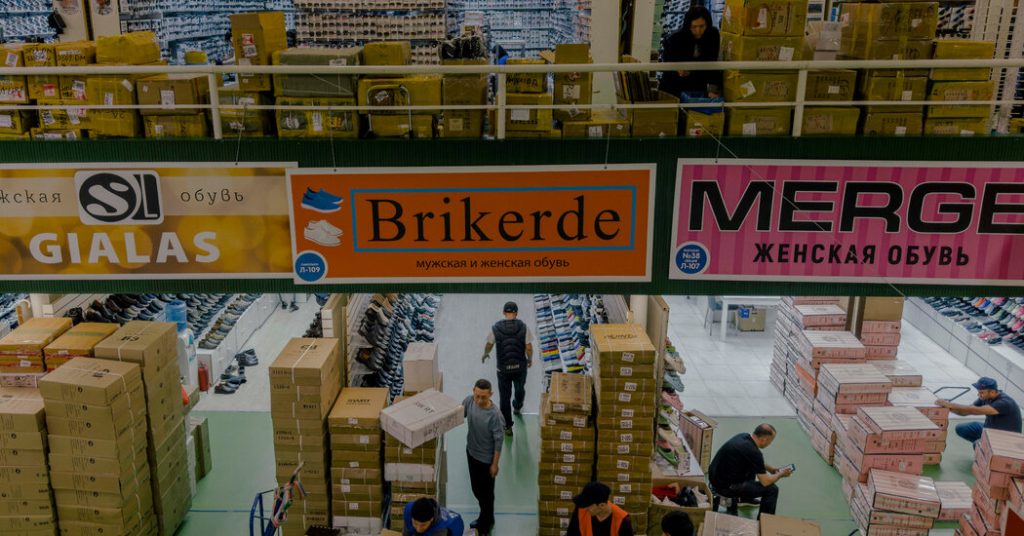Muhammad, a Tajik citizen who had found a better life in Russia, began driving delivery vans in Siberia after emigrating last fall. He enrolled his children in a local school, applied for a Russian passport, and started planning to buy an apartment with his higher salary. However, the arrest of a group of Tajik citizens accused of carrying out a terrorist attack in Moscow has filled Muhammad with fear, as he now worries about being targeted in the crackdown on Central Asian migrants who contribute significantly to Russia’s economy. The attack has erased the efforts his family made to fit into society, and he contemplates moving back to Tajikistan to live without fear.
Following the terrorist attack at a concert hall in Moscow, Russian police have conducted raids on construction sites, dormitories, cafes, and warehouses that employ and serve migrants. Thousands of foreigners have been deported after quick hearings on alleged immigration violations, and new measures to restrict immigration are being proposed by officials. This crackdown has led to a rise in xenophobic attacks across Russia, documented by local news media and rights groups, including beatings, verbal abuse, and racist graffiti directed at migrants. The situation reveals a contradiction in wartime Russia, where nationalist fervor has fueled xenophobia even as foreign workers play a crucial role in supporting the country’s war effort.
The demographic expert Igor Efremov estimates that there are between three and four million migrants working in Russia at any given time, with the majority coming from Tajikistan, Kyrgyzstan, and Uzbekistan. Tajiks, in particular, are vulnerable due to their country’s poverty and political isolation, leading many to settle in Russia permanently. Some Tajik citizens who fled civil unrest at home find it unsafe to return, while those deported back to Tajikistan face limited job opportunities. Migration experts fear that the concert hall attack will shift Russia’s migration debate towards national security concerns at the expense of the economy, with calls for restrictions on migration gaining momentum.
Russian policymakers are grappling with labor shortages as unemployment has reached record lows, driven in part by the need for soldiers and military factory workers. The declining population makes it challenging to address these shortages without foreign workers, sparking debates on how to balance national security and economic needs. Conservative voices have called for greater Russification of migrant workers, while others emphasize the importance of respecting Russia’s traditions, culture, and language. The situation has also heightened fears among Tajiks working in Russia, with reports of increased xenophobia and instances of harassment following the terrorist attack.
The concert hall attack has had a profound impact on Tajik migrants in Russia, some of whom have not left their homes out of fear of detention or because they feel ashamed of their countrymen’s actions. Migrant rights activists have appealed numerous deportation orders in response to the crackdown, highlighting the widespread anti-migrant operations that have been taking place. As tensions persist, some Tajiks are considering returning home, where limited job opportunities and economic hardships await. The future of migration in Russia remains uncertain as policymakers navigate security concerns and economic realities in a changing landscape.


